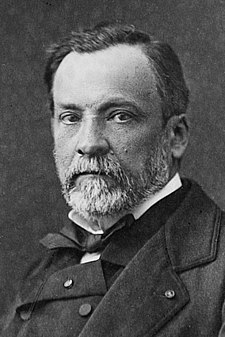What is a residential school?
The Canadian government believed it was responsible for educating and caring for the country’s aboriginal people. It thought their best chance for success was to learn English and adopt Christianity and Canadian customs. Ideally, they would pass their adopted lifestyle on to their children, and native traditions would diminish, or be completely abolished in a few generations.
The Canadian government developed a policy called "aggressive assimilation" to be taught at church-run, government-funded industrial schools, later called residential schools. The government felt children were easier to mould than adults, and the concept of a boarding school was the best way to prepare them for life in mainstream society.
Residential schools were federally run, under the Department of Indian Affairs. Attendance was mandatory. Agents were employed by the government to ensure all native children attended.
Eleven hundred students initially attended 69 schools across the country. In 1931, at the peak of the residential school system, there were about 80 schools operating in Canada. They were in every territory and province except Newfoundland, Prince Edward Island and New Brunswick. There were a total of about 130 schools from the earliest in the 19th century to the last, which closed in 1996.
What were the effects of the residential school system?
Residential schools were established with the assumption that aboriginal culture was unable to adapt to a rapidly modernizing society. It was believed that native children could be successful if they assimilated into mainstream Canadian society by adopting Christianity and speaking English or French. Students were discouraged from speaking their first language or practising native traditions. If they were caught, they would experience severe punishment.
Throughout the years, students lived in substandard conditions and endured physical and emotional abuse. There are also many allegations of sexual abuse. Students at residential schools rarely had opportunities to see examples of normal family life. They were in school 10 months a year, away from their parents. All correspondence from the children was written in English, which many parents couldn't read. Brothers and sisters at the same school rarely saw each other, as all activities were segregated by gender.
When students returned to the reserve, they often found they didn't belong. They didn't have the skills to help their parents, and became ashamed of their native heritage. The skills taught at the schools were generally substandard; many found it hard to function in an urban setting. The aims of assimilation meant devastation for those who were subjected to years of mistreatment.
In 1990, aboriginal leader Phil Fontaine called for the churches involved to acknowledge the physical, emotional, and sexual abuse endured by students at the schools. In 1991 the government convened a Royal Commission on Aboriginal Peoples. Many people told the commission about their residential school experiences, and its 1996 report recommended a separate public inquiry into residential schools. That recommendation was never followed.
What is the Truth and Reconciliation process?
The Truth and Reconciliation process is an initiative meant to raise awareness of the impact on human dignity caused by the residential school experience. The goal is to create a shared narrative of former students and their families in a culturally appropriate environment.
The approach is known as a form of "restorative justice," which differs from the customary adversarial and retributive justice. The truth and reconciliation process seeks to heal relations between opposing sides by uncovering facts, distinguishing truth from lies, and allowing for acknowledgement, appropriate public mourning, forgiveness and healing. Sixty million dollars will be allocated to the creation of a Truth and
Apology by the Anglican Church --1993
My Brothers and Sisters:
"Together here with you I have listened as you have told your stories of the residential schools. I have heard the voices that have spoken of pain and hurt experienced in the schools, and of the scars which endure to this day. I have felt shame and humiliation as I have heard of suffering inflicted by my people, and as I think of the part our church played in that suffering. I am deeply conscious of the sacredness of the stories that you have told and I hold in the highest honour those who have told them. I have heard with admiration the stories of people and communities who have worked at healing, and I am aware of how much healing is needed. I also know that I am in need of healing, and my own people are in need of healing, and our church is in need of healing. Without that healing, we will continue the same attitudes that have done such damage in the past. I also know that healing takes a long time, both for people and for communities. I also know that it is God who heals, and that God can begin to heal when we open ourselves, our wounds, our failures and our shame to God. I want to take one step along that path here and now. I accept and I confess before God and you, our failures in the residential schools. We failed you. We failed ourselves. We failed God. I am sorry, more than I can say, that we were part of a system which took you and your children from home and family. I am sorry, more than I can say, that we tried to remake you in our image, taking from you your language and the signs of your identity. I am sorry, more than I can say, that in our schools so many were abused physically, sexually, culturally and emotionally. On behalf of the Anglican Church of Canada, I present our apology."
What do you think about this apology? Does it go far enough? Does this seem like an easy way out of this situation?














